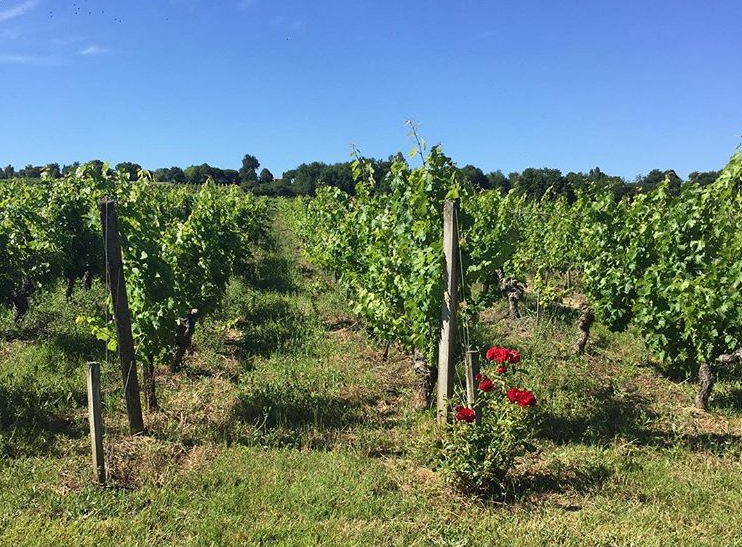France, Your Wine is in Danger

This vineyard is quiet, save for the chattering of leaves with the breeze. The trellised vines form orderly walls repeating a thousand times in the field. Flowering has not begun, but the plants are bright, saturated. A château watches from its hillside perch. It’s slow. Hidden. Timeless, a place you could imagine lasting into infinity—not destroyed within decades from climate change.
Bordeaux’s vineyards sit in the southeast of France. It’s one of the largest wine-producing regions in France. You probably know them for their Cabernet, Merlot, or Bordeaux blends. You probably don’t attribute your enjoyment to the region’s climate. But grapes only grow in goldilocks zones; for them it’s chilly, has not overly fertile soil, and consistent weather during the growing season. Traits which are all changing with the climate.
As the temperature rises, grapes growth cycles become shorter. Growers need to act sooner than they have in years past in order to harvest grapes while they’re still ripe—a move which results in soaring sugar and alcoholic content. And with an increase of late frosts and hailstorms that wreck the crops, yields are becoming smaller.
I spoke to Ali, a 27-year-old who has worked in vineyards for the past six years, about the changes he’s seen. “Harvest times are earlier, I remember an estate in which they had a board with start of harvest since 1820, and you could clearly see them moving earlier and earlier. In the wines, you feel it too, ripe wines, less acidity. A lot of talk at the moment on that, on optimal harvest date. Because everything we knew about when to harvest is changed.”
Chateau on a Bordeaux Estate, Image Credit: Theresa EngelWhile some Bordeaux estates have been experimenting with growing new varieties of grapes that can withstand the changing climate, it’s not enough. Not only are there rules that discourage new varieties in certain regions, but many growers are hesitant even to consider making changes that would allow their estates to adapt. Ali says that he sees many growers who want to maintain tradition. But this isn’t sustainable: “Clonal selection of a single variety is driving us straight into a wall. More diversity would be better for adaptation, taste and reducing treatments on the vineyards.”
But even if they did, the changes may not be enough. If the yearly increase of our global greenhouse gas emissions doesn’t slow (the “business as usual” scenario) in the next decade, Bordeaux will only see worse unpredictable hailstorms and frosts, heat waves, and shorter growth cycles that lead to earlier harvest times. Eventually, the region will be unable to grow grapes.
The loss of French regions being able to grow wine is more than just production changes—it’s cultural. Sophomore Environmental Science major Meredith Miller explains that “wine is a cheap alcohol that is readily available, and it brings us together. What AUP party, student event, interaction with friends, is not complete without wine? It’s a symbol of hospitality, of friendship. It’s important to the culture.”
Bordeaux Vineyards, Image Credit: Theresa EngelWine tourism is another ingrained part of this culture. It’s why I came to this vineyard: sample wine, admire the landscape, and enjoy the moderate southern weather. It’s lovely, for now—but tourism will move north soon. Global heating means that regions that couldn’t grow grapes before will be able to, places like northern France, Scandinavia, and the United Kingdom. In the short term, these areas will see an influx of wine production and tourism, as Bordeaux’s decreases. But, “I think if the English are in charge of making wine, the world will be much worse place,” Meredith says. And it would only be a matter of time until it faces the same fate as Bordeaux.
The move north will likely displace workers like Ali. Growers will move to follow the work, those who are able. They’ll become the latest victims of climate displacement.
For now, the fields are quiet. Visitors can step into the fields and shed their anxiety. The budding grapes grow to harvest, ignorant of incoming disaster. The château on the hill does not foresee the day when the soil turns dry and no one comes to visit.
So, drink your wine now. Visit your vineyards while you can. Business as usual will kill this business.
France, your wine is in danger.



